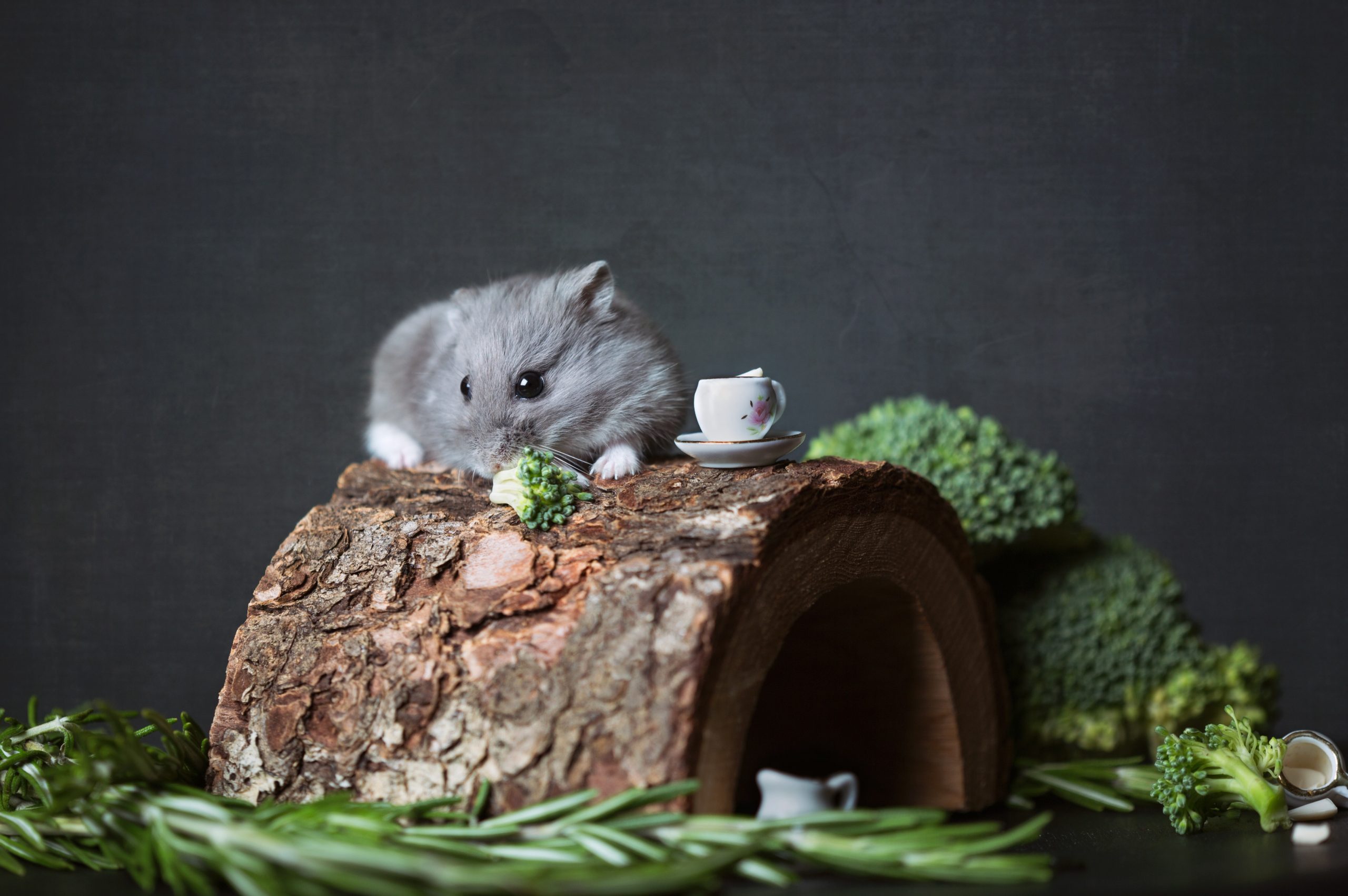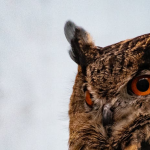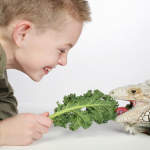What Animals Love to Eat: Pet Food Recipes Featuring Their Favorite Foods
Pet owners are always looking for ways to keep their furry friends happy and healthy. One of the most important aspects of pet care is providing them with the right nutrition. While commercial pet food is readily available, many owners prefer to make their own pet food to ensure that their pets are getting the best possible diet. This is where knowing what food animals love can come in handy.
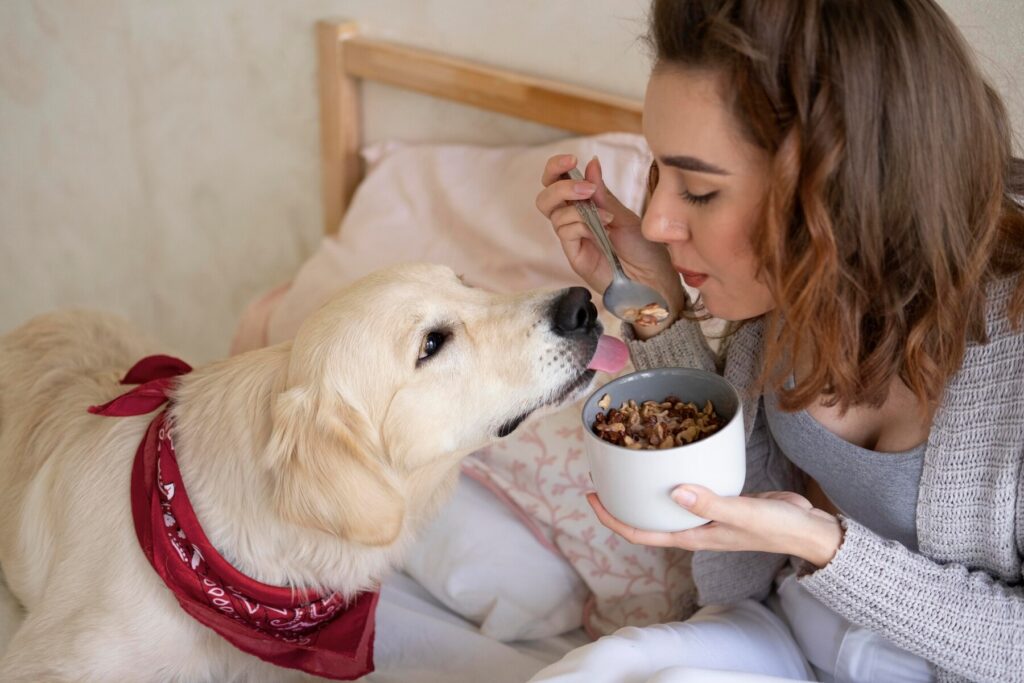
Animals have specific dietary needs, and knowing what they love to eat can help pet owners create nutritious and delicious meals for their pets. From dogs and cats to birds and rabbits, each animal has its own preferences when it comes to food. Some animals love fruits and vegetables, while others prefer meat and fish. Pet owners who understand their pets’ dietary needs can create custom pet food recipes that cater to their pets’ tastes and nutritional needs.
Understanding What Animals Love to Eat
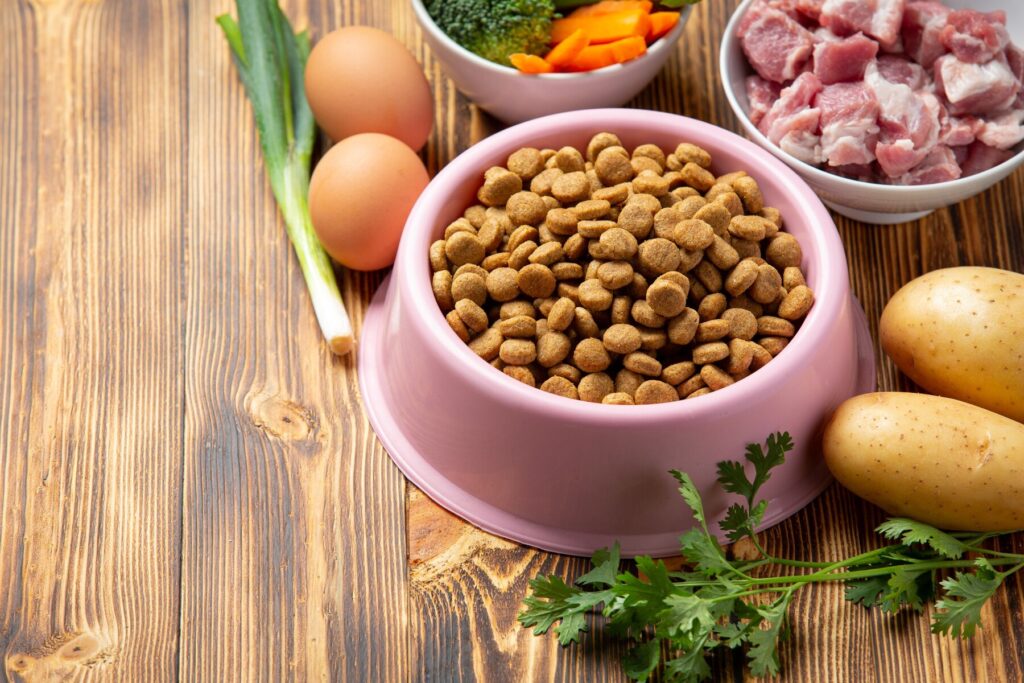
When it comes to pet food, it’s important to consider the dietary needs and preferences of different animals. Understanding what animals love to eat can help you create a balanced and nutritious diet for your furry friend.
Herbivores
Herbivores are creatures whose diet predominantly consists of plants. Among the most popular herbivorous pets are rabbits, guinea pigs, and horses. These animals necessitate a diet abundant in fiber but low in fat to maintain optimal health. Offering a diet comprising hay, fresh vegetables, and fruits can furnish herbivores with the essential nutrients they need.
Carnivores
Carnivores are animals that primarily eat meat. Cats and dogs are examples of carnivorous pets. These animals require a diet that is high in protein and fat. A diet rich in meat, poultry, and fish can provide the necessary nutrients for carnivores.
Omnivores
Omnivores are animals that eat both plants and meat. Some common omnivorous pets include pigs and birds. These animals require a balanced diet that includes both plant and animal-based foods. A diet rich in fruits, vegetables, grains, and meat can provide the necessary nutrients for omnivores.
It’s important to note that not all animals have the same dietary needs. Before making any changes to your pet’s diet, it’s important to consult with a veterinarian to ensure that your pet is receiving the proper nutrition.
Exploring Pet Food Options
When it comes to feeding pets, there are two main options to consider: commercial pet food and homemade pet food. Both options have their pros and cons, and it’s important to explore them to make an informed decision.
Commercial Pet Food
Commercial pet food is widely available and convenient. It comes in various forms such as dry kibble, wet food, and semi-moist food. It is also formulated to meet the nutritional needs of different types of pets, from dogs and cats to birds and fish.
However, not all commercial pet food is created equal. Some brands use low-quality ingredients and fillers that may not be good for your pet’s health. It’s important to read the labels and choose a brand that uses high-quality ingredients and meets the nutritional requirements of your pet.
Homemade Pet Food
Homemade pet food is becoming more popular as pet owners want more control over what their pets eat. It allows you to choose the ingredients and tailor the recipe to your pet’s specific needs. Homemade pet food can be made in batches and frozen for later use, making it a convenient option.
However, making homemade pet food can be time-consuming and requires knowledge of pet nutrition. It’s important to consult with a veterinarian or a pet nutritionist to ensure that your homemade pet food meets your pet’s nutritional needs.
Both commercial and homemade pet food options have their advantages and disadvantages. It’s important to research and choose the best option for your pet’s health and well-being.
Here are a few pet food recipes you can try.
Pet Food Recipes
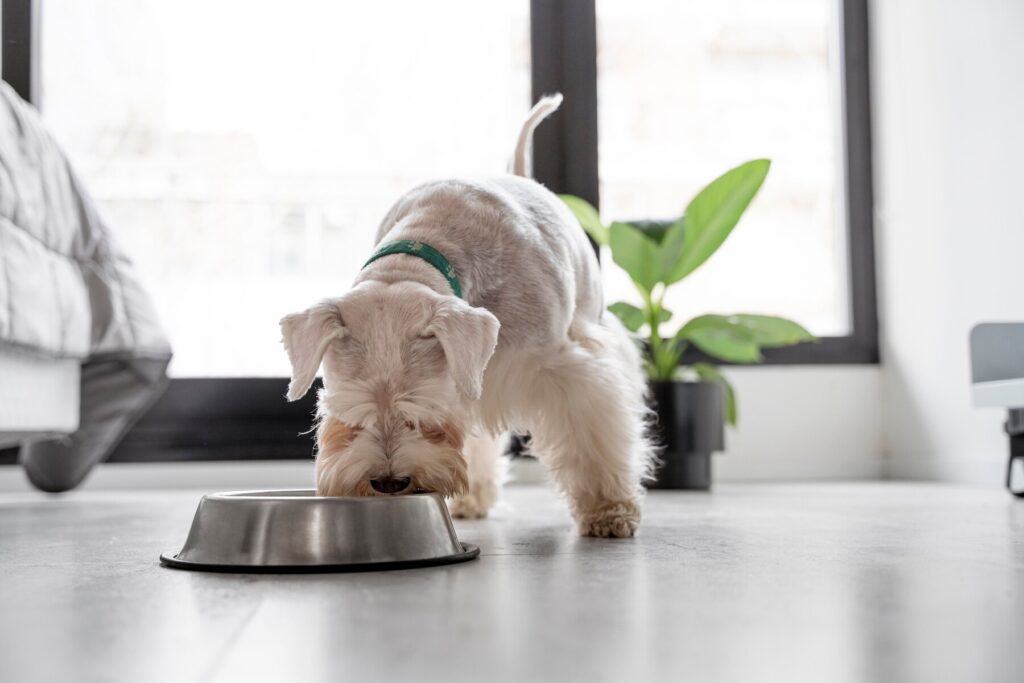
Dog Food Recipes
Dogs are known for their love of meat and there are many homemade dog food recipes that can be made with simple ingredients. Here are a few that dogs are sure to love:
- Beef and Rice: Cook 1 cup of rice and 1 pound of ground beef. Mix together and add in 1 cup of chopped vegetables such as carrots, peas, and green beans. Serve to your dog once it has cooled down.
- Chicken and Sweet Potato: Cook 1 cup of sweet potatoes and 1 pound of boneless, skinless chicken breasts. Mix together and add 1/2 cup of cooked brown rice. Serve to your dog once it has cooled down.
- Salmon and Quinoa: Cook 1 cup of quinoa and 1 pound of canned salmon. Mix together and add in 1/2 cup of chopped spinach and 1/4 cup of chopped parsley. Serve to your dog once it has cooled down.
Cat Food Recipes
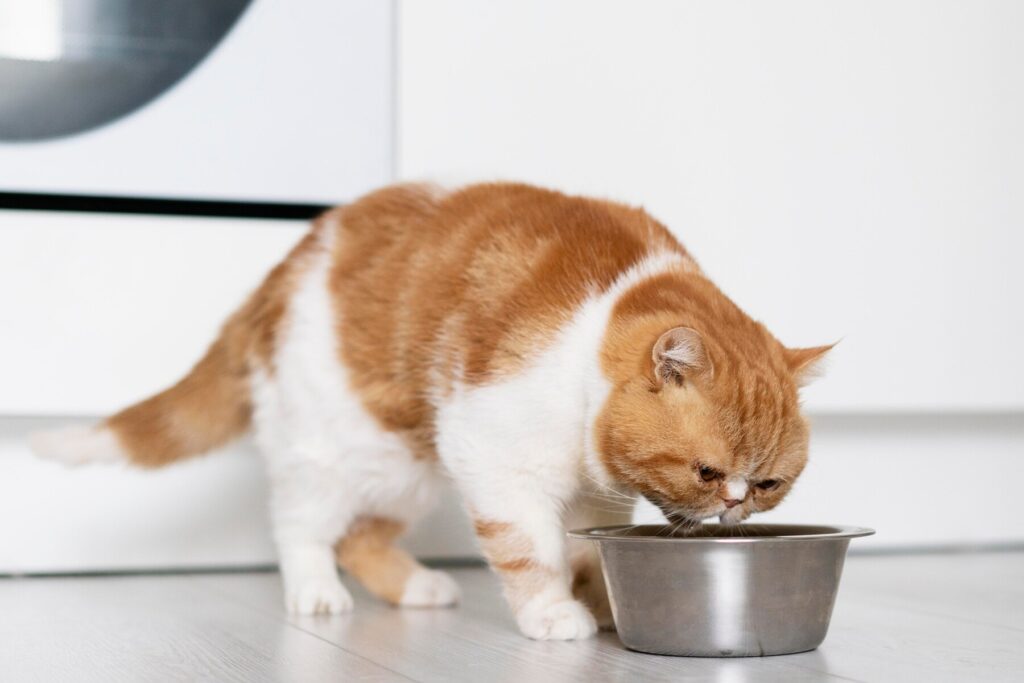
Cats, being obligate carnivores, depend on meat as an essential component of their diet. Below are some homemade cat food recipes guaranteed to satisfy their dietary needs.
- Chicken and Liver: Cook 1 pound of boneless, skinless chicken breasts and 1/2 pound of chicken liver. Mix together and add in 1/2 cup of cooked brown rice and 1/4 cup of chopped parsley. Serve to your cat once it has cooled down.
- Beef and Carrots: Cook 1 pound of ground beef and 1 cup of chopped carrots. Mix together and add in 1/2 cup of cooked quinoa. Serve to your cat once it has cooled down.
- Fish and Peas: Cook 1 pound of canned tuna or salmon and 1 cup of peas. Mix together and add 1/2 cup of cooked brown rice. Serve to your cat once it has cooled down.
We advise you to speak to your vet prior to changing your cat’s diet. These recipes are meant to supplement a balanced diet and should not be the sole source of nutrition for your pet.
The Impact of Diet on Pet Health
The impact of diet on pet health is profound and far-reaching, influencing their overall well-being and quality of life. Just like humans, pets require a balanced diet rich in essential nutrients to thrive. A nutritious diet supports optimal growth, development, and maintenance of bodily functions, including muscle strength, immune system function, and organ health. Conversely, poor dietary choices can lead to a range of health issues, including obesity, nutrient deficiencies, digestive problems, and dental issues.
One of the most important factors to consider when choosing a pet food is the quality of the ingredients. High-quality ingredients, such as whole meats, fruits, and vegetables, provide the necessary nutrients for optimal health. On the other hand, low-quality ingredients, such as fillers and by-products, can cause health problems and lead to obesity.
It’s also important to consider the specific nutritional needs of different types of pets. For example, a cat’s diet typically consists of high-quality protein, essential nutrients, water, and occasional treats, tailored to their carnivorous nature, they need balanced portions of protein, carbohydrates, fats, vitamins, and minerals, tailored to their omnivorous dietary requirements.
In addition to choosing a high-quality pet food, pet owners can also supplement their pet’s diet with healthy treats and home-cooked meals. Homemade pet food recipes can be a great way to ensure that pets are getting all of the necessary nutrients and can be tailored to their individual dietary needs.
Overall, the impact of diet on pet health cannot be overstated. By choosing high-quality pet foods and supplementing with healthy treats and home-cooked meals, pet owners can help ensure that their furry friends live long, healthy lives.


